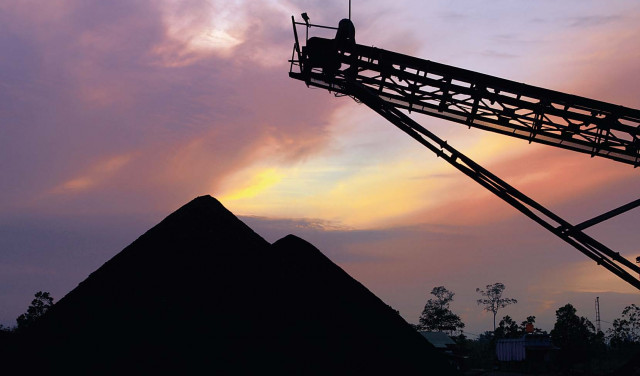Thar coal ignored by federal government
A lack of infrastructure and absence of proper incentives by the federal government are chiefly to blame.

A lack of infrastructure and absence of proper incentives by the federal government are chiefly to blame.
The Sindh government has claimed that it has asked Islamabad to approve a comprehensive tax incentive package and become a partner in providing the required $1.8 billion of infrastructure for the mining of the Thar coal reserves according to sources in the water and power ministry, according to sources.
However, despite a number of meetings, the federal government has not reached any decision in this regard said the sources, adding that Finance Minister Hafeez Shaikh was reluctant to give a matching grant each year.
Sources also said that the Sindh government has also immediately sought Rs10 billion from the federal government. The amount was to be allocated equally towards the Makhi-Farsh water supply project for Thar and a transmission line scheme.
Regarding investment incentives, the Sindh government has sought a thirty-year corporate income tax and a minimum turnover tax exemption. The exemption is sought from the date of the first sale of lignite to power plants. All imports by mining projects should be allowed zero per cent customs duty to provide the same advantages as those provided to independent power producers, according to the Sindh government’s proposal. The proposal also seeks a waiver of withholding tax on dividends to shareholders and an exemption of WHT on the procurement of goods and services during project construction and operations. The incentive package remains to be approved by the Economic Coordination Committee of the cabinet.
The sources added that “unless Thar Coal projects are incentivized, it will not be possible to attract the capital required to achieve financial close”. Financial close is the time period required for the completion of all documentation and conditions necessary to initiate a project.
The provincial government also asked the federal government to match the contribution for infrastructure development, for support for project financing from multilateral donors and for the World Bank to rekindle its interest in the coal sector. Previously, the WB withdrew its assistance in exploring the Thar coal reserves.
“The development of infrastructure is critical for the development of Thar Coal Block II”, the Sindh government official added. The infrastructure development package consists of a water supply and an effluent disposal system for Thar mining and power generation projects costing $500 million, transmission lines worth a billion dollars, roads for heavy transportation costing $50 million and a railway network costing $200 million.
The Sindh government is developing Block II of Thar Coal reserves by initiating a joint venture with Engro Power Gen Limited. It has also established Sindh Engro Coal Mining Company and has 40 per cent stakes in it. According to an official of the Sindh government, potential benefits of the Block II project could be enormous. “It would attract $ 20 billion of investment during next ten years and save $79 billion of reserves by replacing expensive oil with coal for power generation,” he claimed.
Thar Desert contains the world seventh largest coal reserves. The reserves have been estimated at 175 billion tons, equivalent to 50 billion ton of oil, which is more than Iran and Saudi Arabia combined oil reserves and enough to generate 100,000MW electricity for over 200 years. Pakistan’s current use of coal, despite having one of the largest reserves of lignite in the world, is extremely negligible. It produces 0.1 per cent of the total energy from coal as opposed to India’s 53 per cent and China 78 per cent. Instead, Pakistan produces 35 per cent electricity by using imported oil.
The need to mine the trillions of dollars worth coal reserves is compounded with the increasing demand and cost of energy. According to the government estimates, the energy shortage would increase drastically in the coming years from its existing peak level of 6577 megawatts to 18320 megawatts in 2015.
Published in The Express Tribune, August 28th, 2010.




1733130350-0/Untitled-design-(76)1733130350-0-208x130.webp)













COMMENTS
Comments are moderated and generally will be posted if they are on-topic and not abusive.
For more information, please see our Comments FAQ